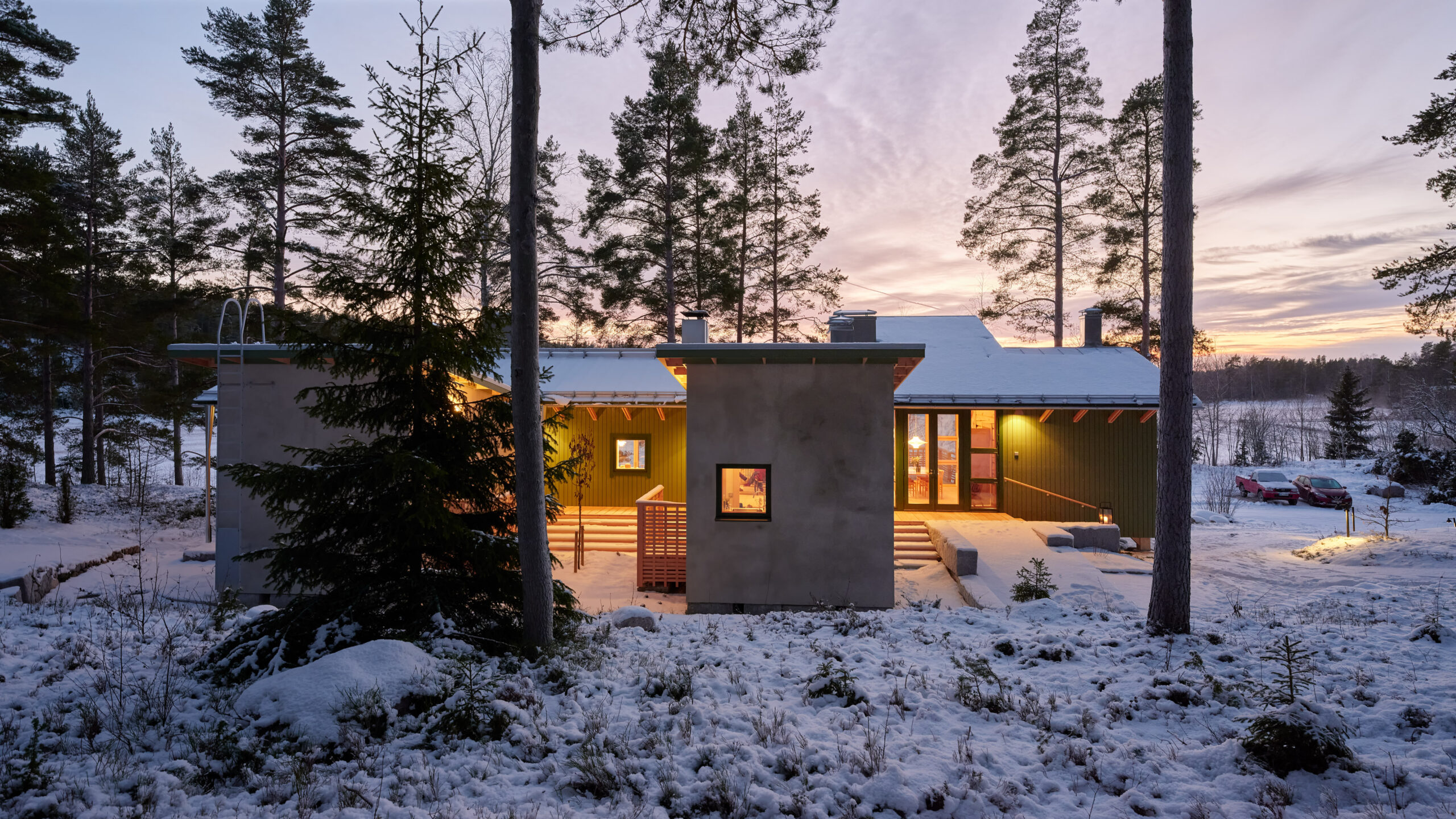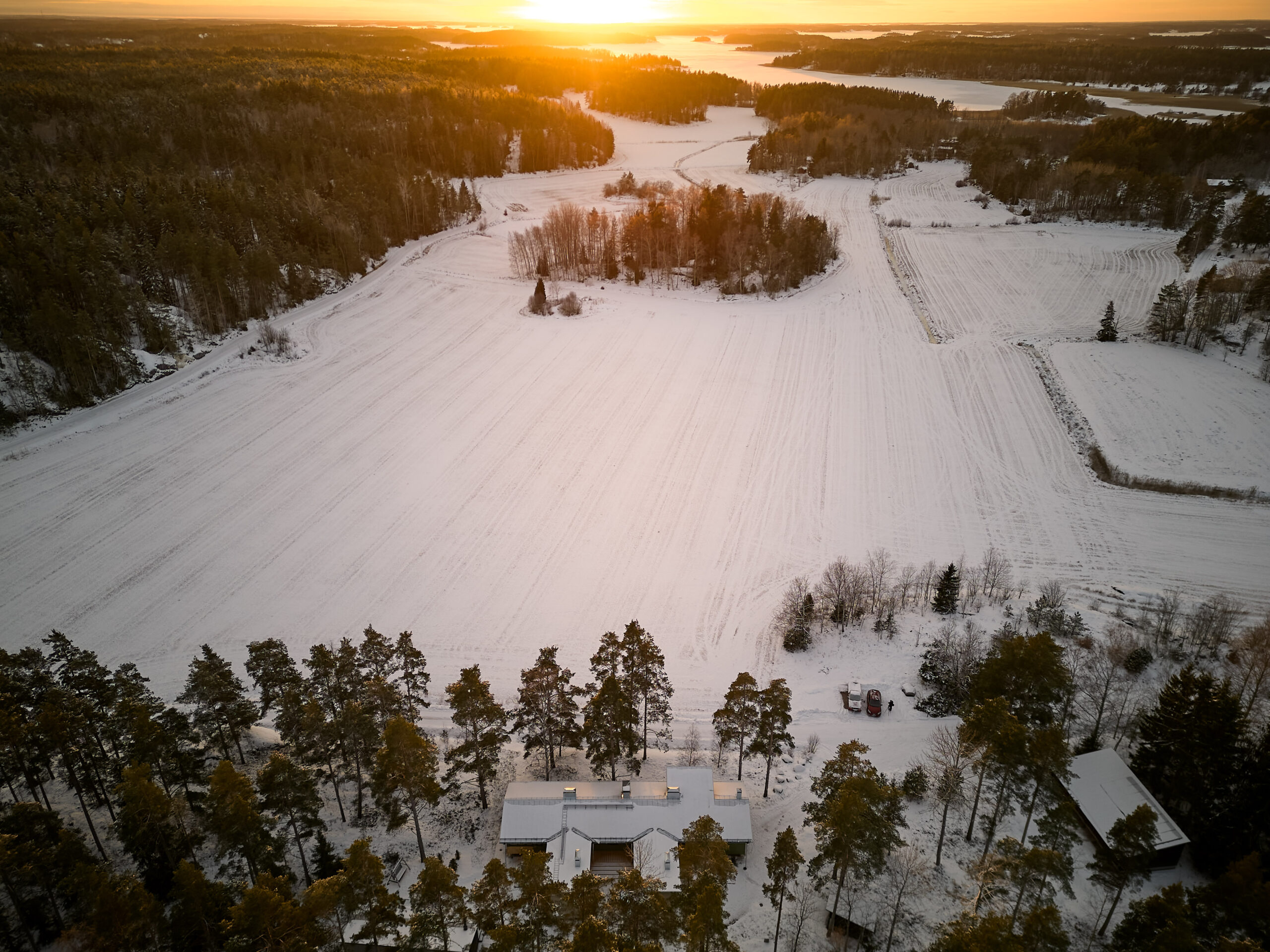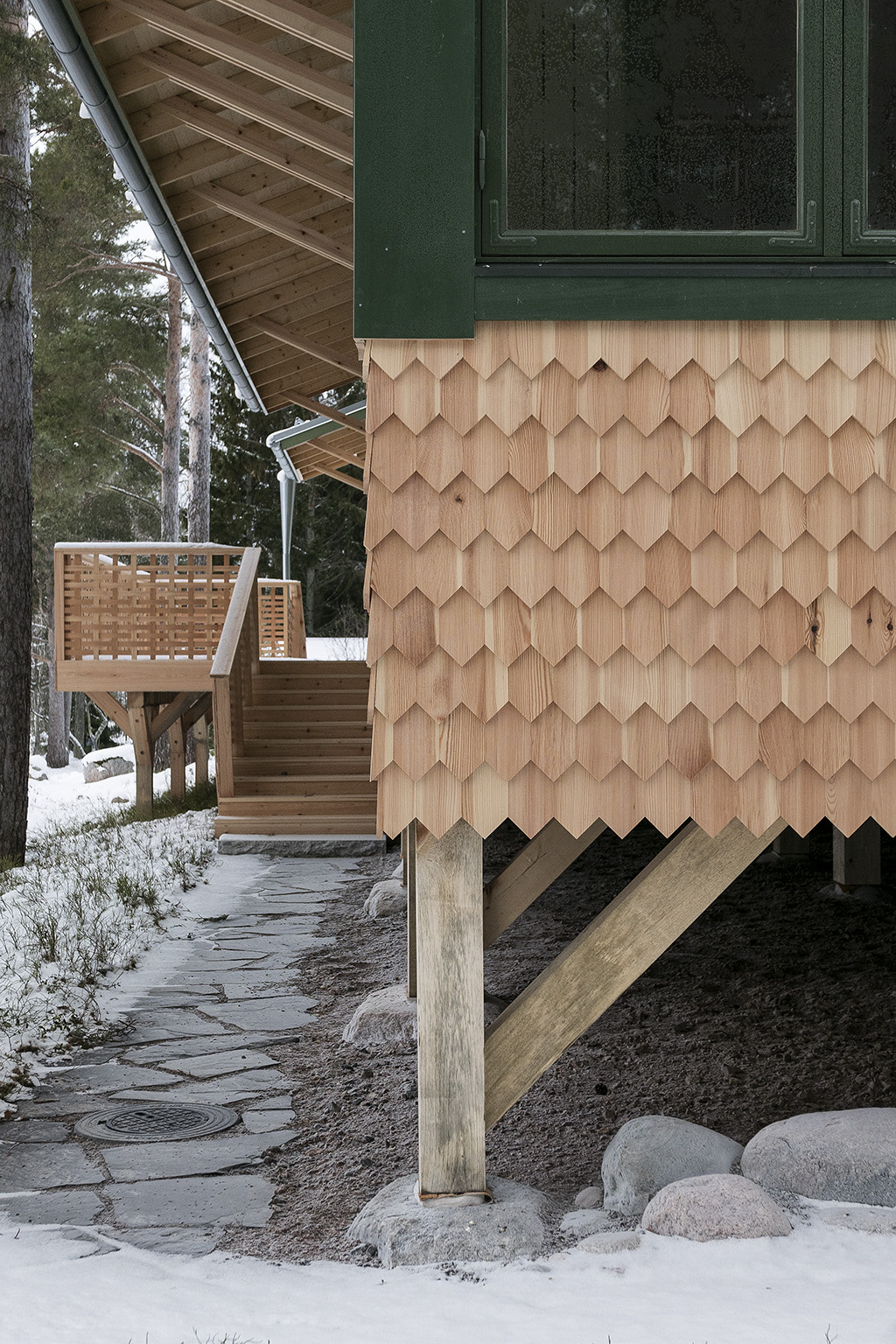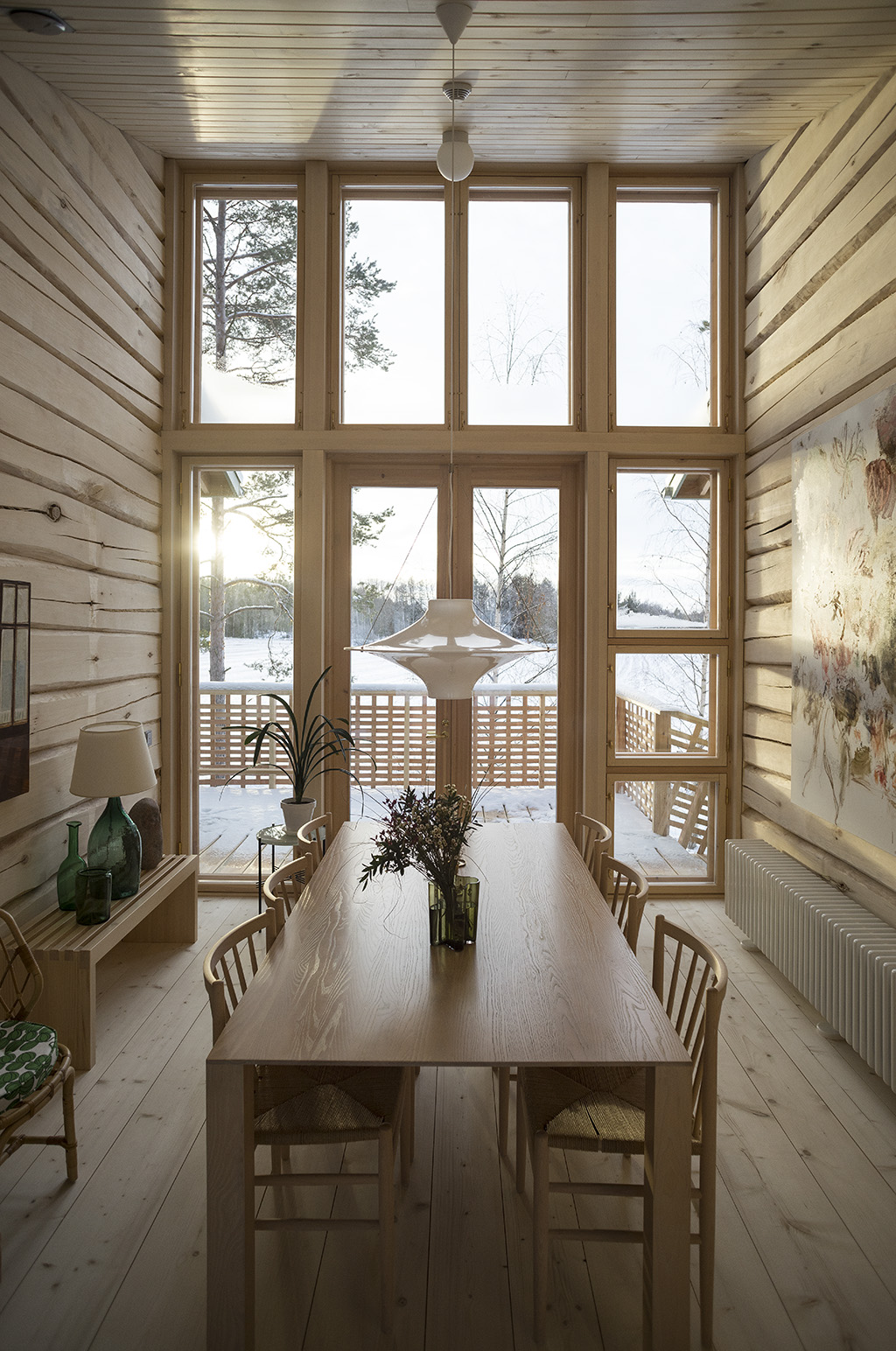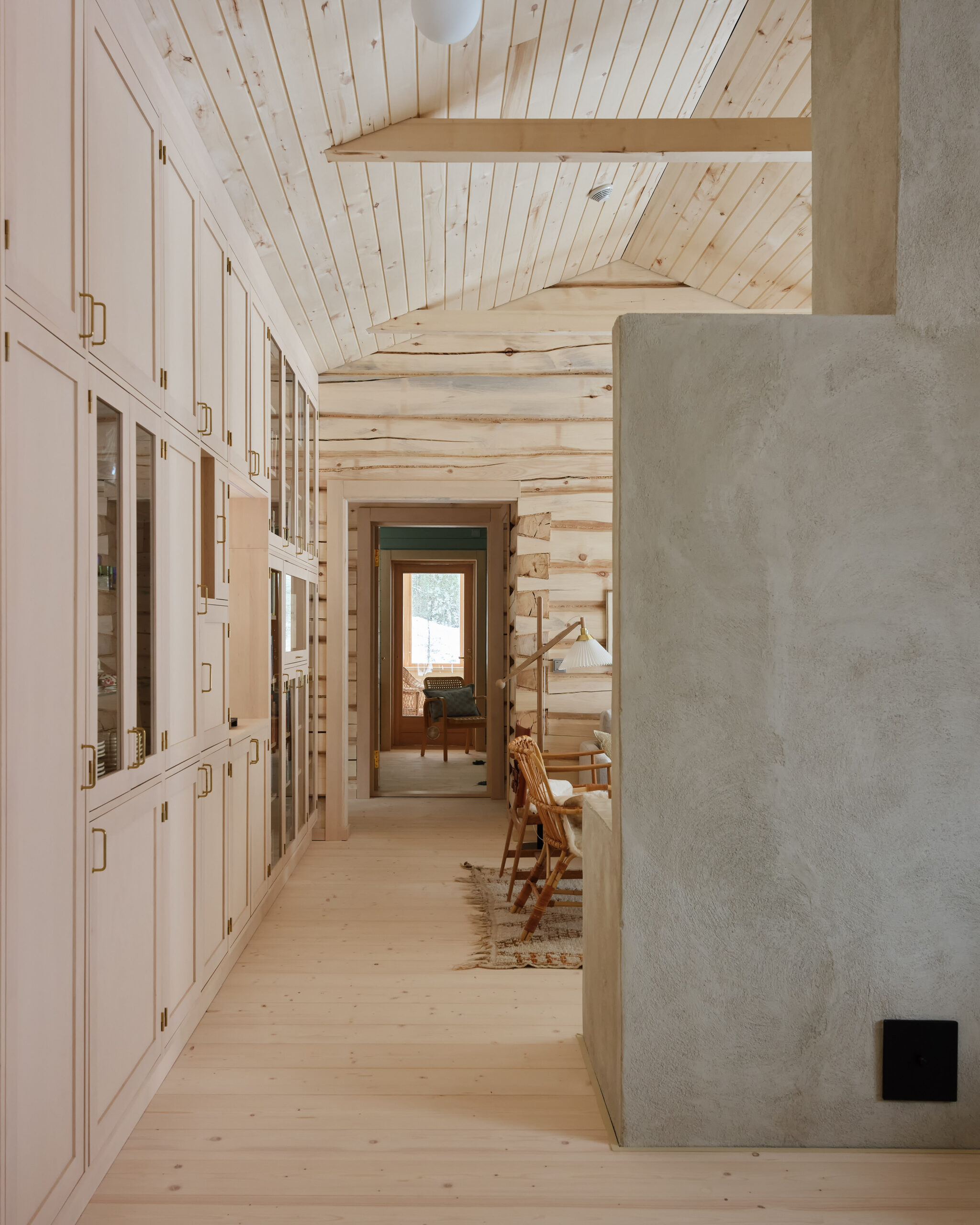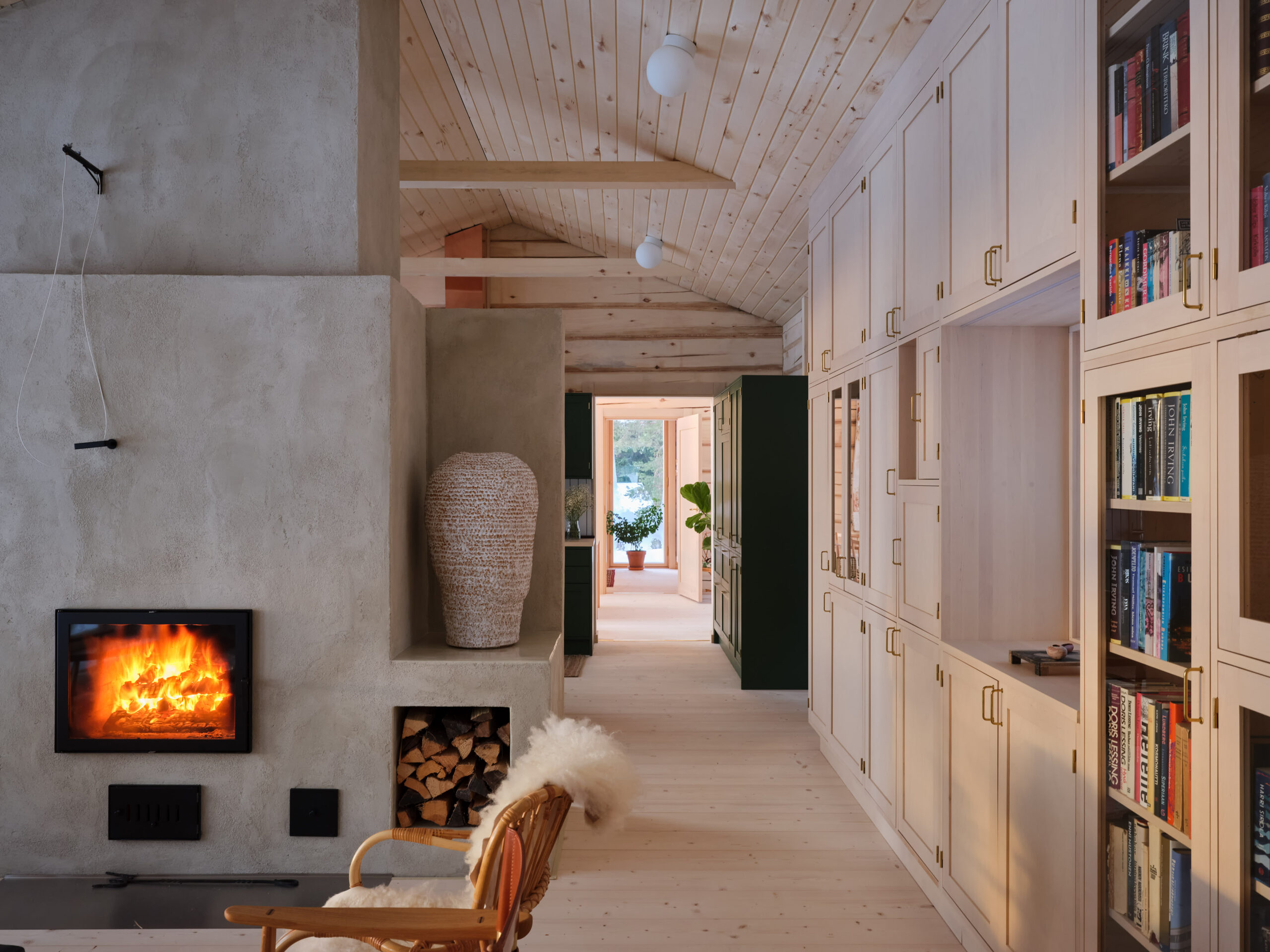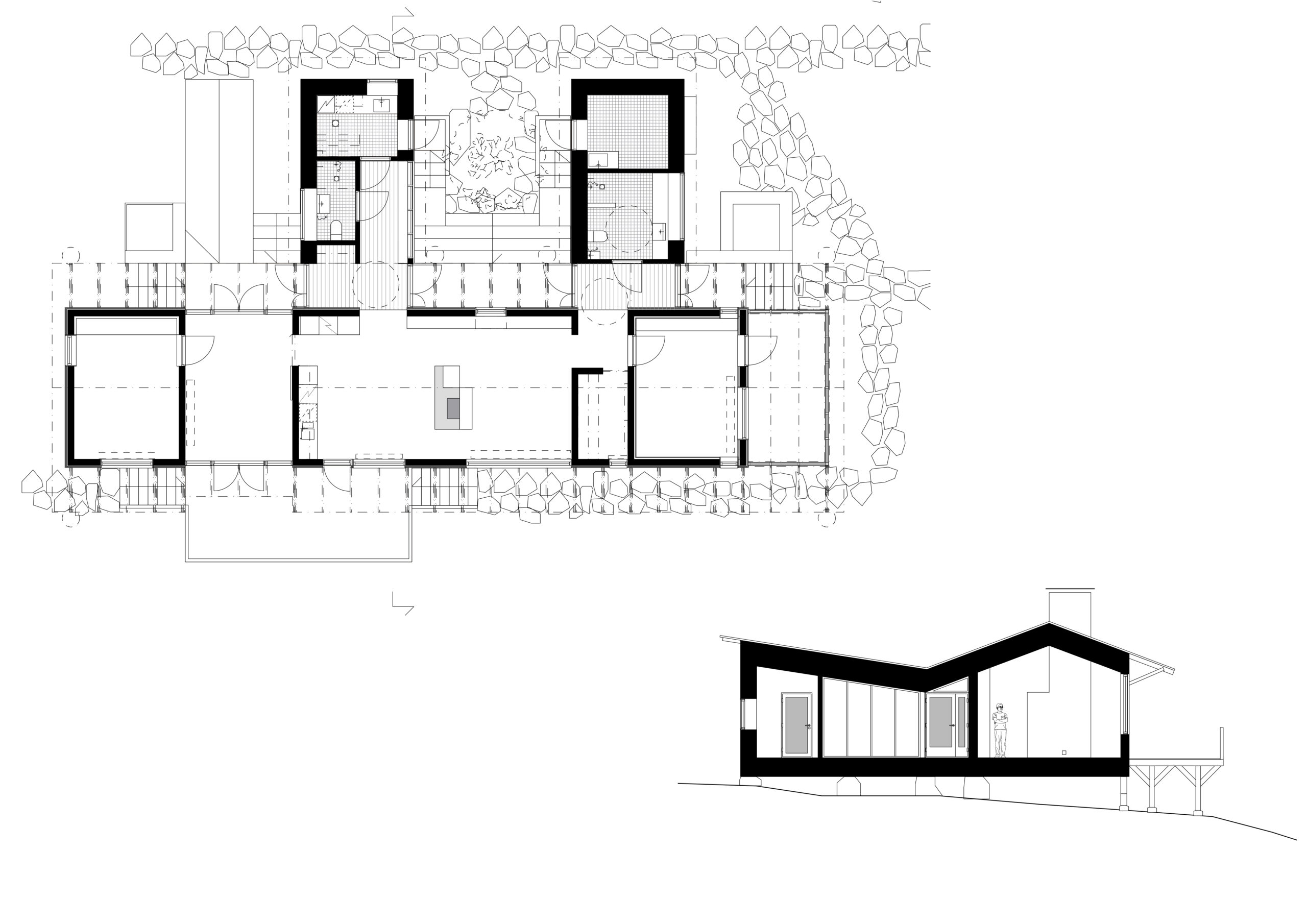Huvila

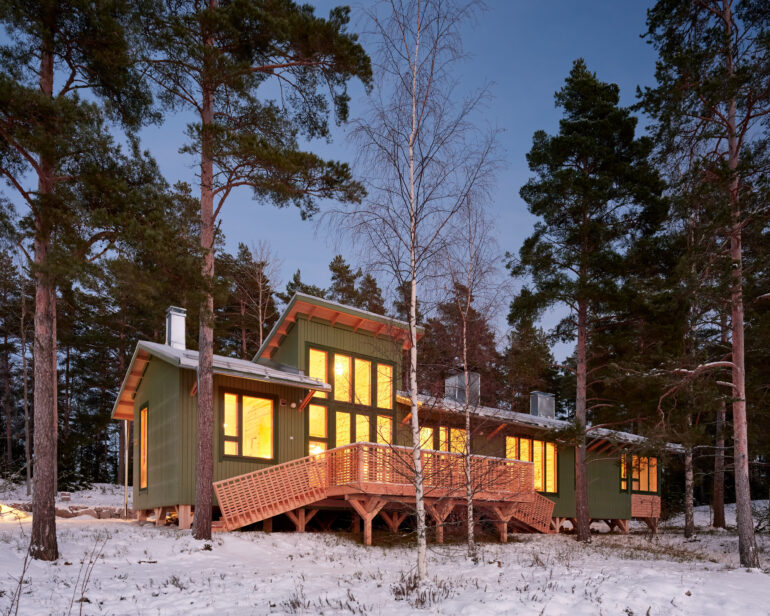
Architect / Designer:
Studio:
Design Team:
Structural engineer: Mika Widgren / Rakennussuunnittelu Widgren
Electrical engineer: Niklas Rosenblad with expertise from Reijo Ekman
HVAC engineer: Antti Artamo / LVI- Suunnittelu Suhde Oy
Ceramic artist: Kristina Riska
Main contractor: Lauri Leppänen / Restart Oy
The specialists from the contractor firm Restart have been involved in the design process from the very start to the finalised building.
Garden contractor: Marko Anttonen / Saajan Viherrakennus
Construction consultant: Mikaela Pappila / Ab Pappila Design Oy
Photos by Marc Goodwin, Juha Ilonen and Jenni Reuter
Copyright:
Country:
The task was to design an environmentally friendly building, gentle to the senses. A healthy home for a client who is sensitive to certain chemicals and electromagnetic fields. The site is on the edge of a forest next to a large field.
The process started from scratch since nor the client or the designers could be sure of what materials would be suitable regarding the chemical sensitivity. During the testing phase the client kept some of the building material samples in her sleeping room to ensure their adequacy.
The leading idea in the design was to keep the construction solutions simple and use monolithic materials that can regulate the room humidity and improve the indoor air quality.
The spatial solutions are divided into a wooden part and a masonry part. The entrance and bathroom wings are made from massive, loadbearing, insulating, burnt clay blocks and the living part of the building is built of aspen logs. Aspen contains a fairly small amount of terpenes meaning that the building won’t have a strong smell of wood. The wooden part has a gabled roof with the glazed high orangery space as an exception. Next to the bedroom there is a veranda without insulation. It creates a thin building skin between the interior and the exterior. Here you can ventilate your textiles, feel the presence of nature more intensely and listen to the wind and rain. A cold space with fresh air can create ease for persons with chemical sensitivities.
The fireplace is situated in the middle of the building creating a warm and energy efficient heart.
Every space has natural daylight with an individual framed view to the exterior. The openings to the forest are smaller while the views towards the fields are more generous. A small inner courtyard is created towards the forest with a rowan tree in the middle. Its intimate scale creates an outdoor room with the sky as its roof.
The building is lifted from the ground to keep the constructions ventilated. The interior spaces are naturally ventilated.
The skillfully executed handicraft in the construction marks the human memory of the execution. Special attention is paid to the detailing in the wooden railings, the shingle cladded walls, the work with natural stone and the storage furniture. A ceramic artist has made a place specific piece of art in the plastering next to the main entrance. The multisensory experience in the building is gentle. There is an absence of smell, and the acoustics of the building is soft, creating a smooth and warm atmosphere in the spaces. The bodily spatial interior experience is strong. At the lowest point you can touch the ceiling while the highest point is over four meters above your head. The warm materials and skillful handicraft invite to touch the surfaces.
The outer skin of the building is painted green blending into the pine forest. The interior in the log part is unpainted. As a jewelry box.
Jenni Reuter Architects
Jenni Reuter Architects was founded in 1999.
In her work, Jenni Reuter seeks a feeling of ease towards the assignment. Her projects are complete only when they are complemented with their users’ active presence. New investigations in the architectural field are crucial for her practice, leading her, among other things, to use unexpected building materials, such as straw bales and recycled building parts.
Alongside with her practice she works together with her collegues Saija Hollmén and Helena Sandman at Hollmén Reuter Sandman Architects and in the board of Ukumbi NGO.
Jenni Reuter is Associate Professor at Aalto University. She lectures all over the world and her works have been published and exhibited widely.


